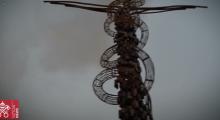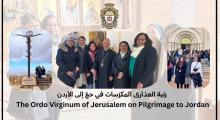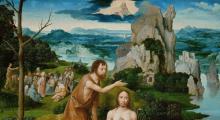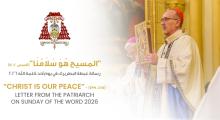Issued by the Catholic Center for Studies and Media - Jordan. Editor-in-chief Fr. Rif'at Bader - موقع أبونا abouna.org
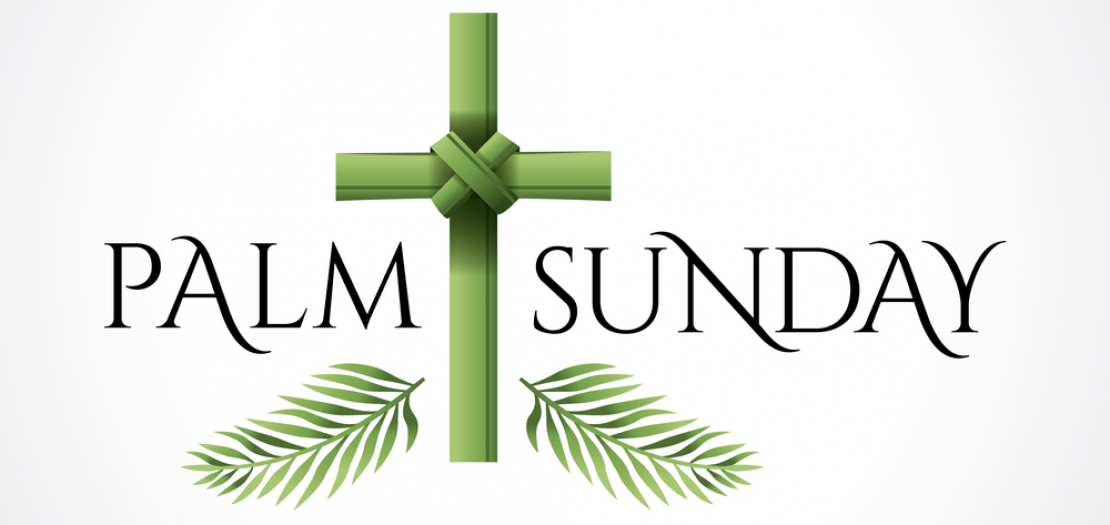
Following is the meditation of Most Rev. Archbishop Pierbattista Pizzaballa, Apostolic Administrator of the Latin Patriarchate of Jerusalem, for Palm Sunday, Year A, April 5, 2020:
When the Lord enters the history of a person, He always enters through the door of life, salvation.
The Gospels are replete with episodes we could cite in this regard. We think of Zacchaeus, for example, head of the tax collectors, a rich man, but also alone and humiliated. Jesus goes to look for him, finds and frees him, and then the Gospel account speaks of great joy because salvation has entered this house.
But we also think of the episodes heard in these last Sundays of Lent: the Samaritan woman, the man blind from birth, Lazarus, all of them marked by death, who in different ways receive the visit of the Lord, and life changes completely.
It’s the history of a pained and wounded humanity which finds hope again because the Friend has come.
This has always been the style of God. The entire history of Israel is the history of God continually visiting His people, in many ways. And every time it is just to save, to re-open the way, to bring back home, to give life again.
We think about the Exodus, the Judges, the prophets...
We think of the Virgin Mary: God visits her through the angel Gabriel, and she becomes the mother of the Lord.
Immediately, she makes this style of God her own, and for this reason, she also sets out to visit her cousin Elizabeth, and there also, exultation erupts.
Today, Palm Sunday, this style of God broadens; no longer only for one person, as it was for Zacchaeus, not only for a family, as it was for that of Lazarus, and not only for a village, where Jesus often visited and the whole village benefited from it. Today the visit of the Lord is for an entire city, an entire people; the Lord wants to bring life to everyone.
Always, when the Lord enters, reactions are many and diverse.
We can think of the episode of the Annunciation to Mary; we find disturbance, questions, perplexity and finally availability and joy.
Jerusalem also knows the same reactions: today’s Gospel speaks of the great exultation, of those who recognize that Jesus, who enters Jerusalem in this way, is coming from God, coming in the name of the Lord (Mt 21:9), is a visit of God to His people. Then they cry out and acclaim their faith: “Hosanna to the Song of David!” (Mt 21:9).
But it also speaks of a great disturbance (Mt 21:10), just as when the Magi entered Jerusalem and asked where the Kings of the Jews was born (Mt 2:2-3).
And, finally, there is no shortage of questions, which arise in the face of this, we could say, “official” visit of the Messiah King to His people: “Who is this man? By what authority do you these things?” (Mt: 10.23).
It is the little ones who recognize that this visit is a visit of the Lord, who does not come to punish but to bring peace.
His coming will also be a judgment, as we will see immediately after the passage that we are reading when Jesus will curse the fig tree that does not bear fruit (Mt 21:18-22); but it will be a judgment for those who will have excluded themselves from the benefits of His visit, for those who do not want to enjoy the benefits of his love.
For others, this coming will be as childbirth, which must pass through the painful pains of death, but which will bear the fruit of life.
This year, in Jerusalem, as in many parts of the world, we will not experience the Palm Sunday procession that from Bethpage enters the Holy City.
Even more, then, we need good eyes to see how the Lord is visiting us, how He is saving us: we cannot believe that He is not doing so.
For many, these days resemble the pains of childbirth, and the cry of suffering is great. We want to believe that the visit of the Lord, this year, gets all the way.
+ Pierbattista



